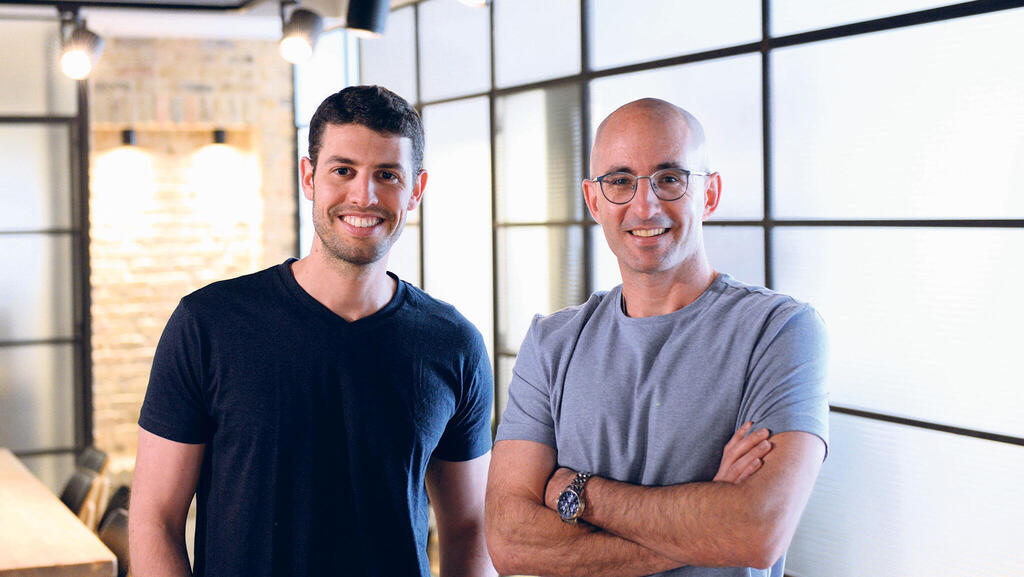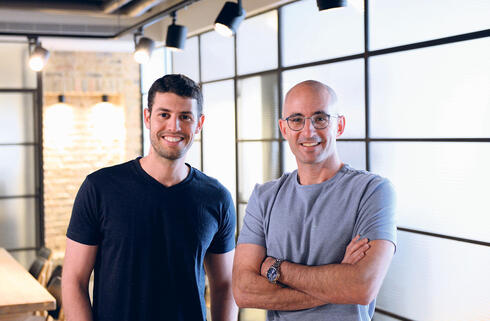
Most Promising Startups - 2025
The great opportunity of the Israeli AI ecosystem
We are at the beginning of the modern AI era. It presents opportunities for startups in Israel to transform industries and reshape the world.
AI is no longer on the horizon — it's already here, and it’s not going anywhere. Much like past technological revolutions — from the Industrial Age to the Internet boom — the AI era presents opportunities far greater than what we currently dare to imagine. From healthcare to climate science, autonomous transportation to telecom and cybersecurity, and from digital AI agents to physical AI — startups that will transform every industry are emerging today.
This moment presents a rare opportunity to build a thriving AI ecosystem in Israel — one that can drive the next wave of Israeli high-tech innovation and propel the national economy forward.
Israeli AI startups are already making an impact globally, especially in AI infrastructure, where the country is seen as a world leader. Together with world-class academia, and deep expertise in key areas of AI, Israel has a competitive edge in developing AI applications that are set to reshape enterprise productivity and business models worldwide, setting the foundation for economic growth. The faster we accelerate efforts to grow Israel’s AI ecosystem, the greater the chance it becomes a global leader, like it did in cybersecurity.
If there’s a lesson that our journey as founders of Run:ai taught us — cliché as it may be — it’s that every setback and failure was essential to our eventual success. The best thing we did was take the plunge. In our early days, we made a fair share of mistakes. But each of them taught us something that helped us course-correct.
We met in 2013 at Tel Aviv University, researching optical communications — far from AI, with the idea for building Run:ai only taking shape in 2018. While that may not seem long ago, it was a time when the large language models we know today were just beginning to emerge, with early breakthroughs like Google’s BERT and OpenAI’s GPT-1, and a wave of global investment in AI infrastructure sparked.
As hardware-focused electrical engineers with no entrepreneurship experience, we had a vision of software that would let data scientists easily train models on thousands of GPUs. pushed us to get going, while giving us a classic piece of Israeli encouragement with the promise that “Things will work out, it’ll be ok.”
Feedback came quickly, with the common refrain, "You have a go-to-market problem." But a note from TLV Partners led to a $3 million seed round — no product, team, or tech, just ambition and belief in GPUs as AI infrastructure.
Many think that startup success comes from a single “Eureka” moment. That wasn’t our story. Ours was built on countless small decisions that didn’t seem pivotal at the time but ultimately shaped the company. A year into Run:ai, after another funding round led by SCapital, we hit a wall. Sales were flat, the tech was overengineered, and it wasn’t meeting expectations. Morale was dropping. Investors were worried. We were stressed and uncertain.
Instead of giving up, we adapted. We dove into AI infrastructure, became domain experts, listened to customers, and pivoted — scrapping everything to focus on solving the real challenge: GPU infrastructure management.
Our collaboration with NVIDIA began right at this time through NVIDIA Inception, a global program designed to nurture cutting-edge AI startups, providing benefits and tools to help them revolutionize industries with AI and accelerated computing. We worked closely with NVIDIA’s engineering, product, and business teams to refine our strategy and solution, and they helped us connect with potential customers.
That relationship became a turning point. We realized that wherever there’s a NVIDIA GPU, there’s a need for the NVIDIA Run:ai platform, which allows companies to better utilize their existing infrastructure.
Related articles:
Two years later, sales spiked. We’d raised $118 million across four rounds led by TLV Partners, SCapital, Insight Partners, and Tiger Global. We quickly realized that strategic partnerships were the key to scaling. Our partnership with NVIDIA deepened and opened doors, accelerated our growth, and helped us reach major enterprise customers.
Then, at the end of 2022, came ChatGPT—the turning point for the Generative AI era. It emphasized the importance of GPU orchestration and supported our expansion. Two years later, we were acquired by NVIDIA.
This journey was driven not only by perseverance and technological innovation, but also by the strength of the ecosystem that surrounded us. The Israeli tech ecosystem is a virtuous cycle. Every startup — whether it succeeds or fails — feeds a growing pool of knowledge, experience, and relationships that fuels the next wave of innovation. Our journey proved just how powerful this ecosystem can be. Israel offers a uniquely collaborative environment where entrepreneurs share lessons and grow together.
Of course, there are challenges — like limited access to AI infrastructure or the complex reality we face in Israel. But despite that, AI offers an unprecedented opportunity to reshape entire industries — and Israeli startups, entrepreneurs and researchers are uniquely positioned to lead in. Just as we became a global leader in cybersecurity, we now have a chance to do the same in AI.
The opportunity is enormous. Now is the time to seize it.
Omri Geller and Ronen Dar are Vice Presidents at NVIDIA and Co-Founders of Run:ai.
